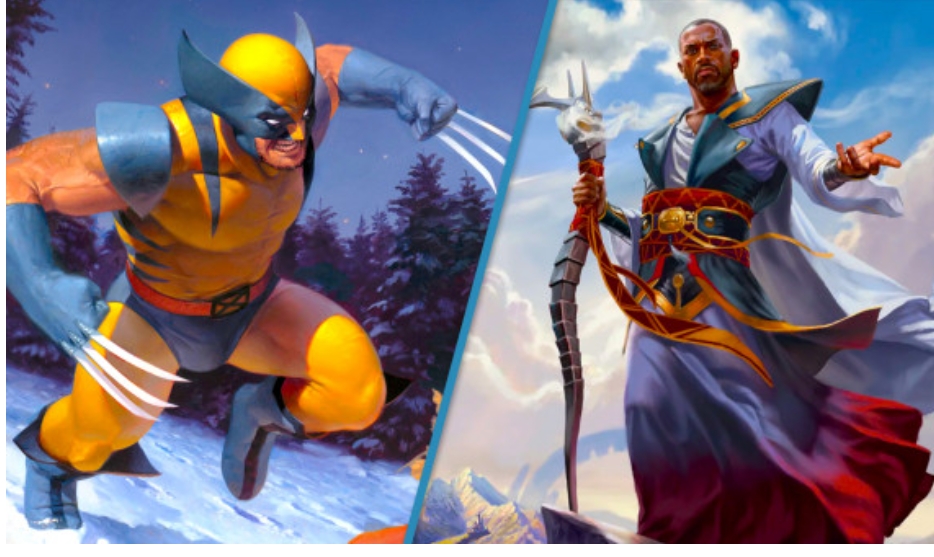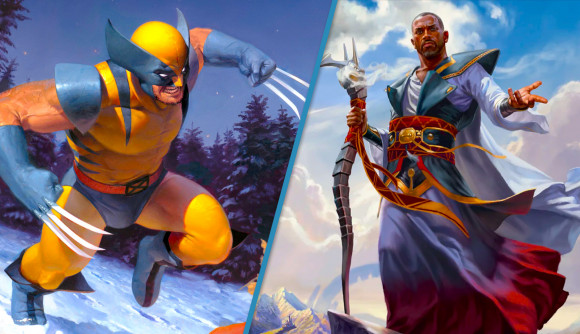

Magic the Gathering’s IP is weak and it will not survive the winter

Magic: The Gathering (MTG), a cornerstone of the trading card game genre, has enjoyed immense popularity since its release in 1993. However, in recent years, cracks in its intellectual property (IP) have begun to show, raising concerns about its long-term sustainability, especially as the gaming landscape evolves. This discussion explores the perceived weaknesses in MTG’s IP and the challenges it may face in the near future.
A Legacy Built on Innovation
MTG revolutionized gaming by combining strategy, lore, and community engagement. Its unique mechanics, expansive multiverse, and rich storytelling attracted a dedicated player base. Over the decades, Wizards of the Coast (WotC) has released numerous expansions, each adding new dimensions to the game. However, the very success of MTG has created expectations that are increasingly difficult to meet.
The Current Landscape of Gaming
The gaming industry has transformed dramatically with the rise of digital platforms, competitive gaming, and diverse genres. Card games have evolved beyond traditional tabletop formats, leading to a proliferation of digital alternatives that often cater to the same audience. Titles like Hearthstone, Legends of Runeterra, and various mobile games provide accessible, engaging experiences that can overshadow MTG’s traditional format.
Market Saturation and Product Overload
One significant issue facing MTG is market saturation. WotC has ramped up the frequency of product releases, introducing multiple sets and products each year. While this strategy aims to keep the game fresh, it can lead to player fatigue and diminish the perceived value of individual cards and sets. Players may feel overwhelmed by the sheer volume of content, leading to disengagement from the game as they struggle to keep up.
Balancing Complexity and Accessibility
MTG’s depth is one of its greatest strengths, but it also presents a barrier to entry for new players. The game’s complex rules and vast card pool can be intimidating, deterring potential newcomers. This complexity can also alienate casual players, who may prefer simpler, more accessible games. As the gaming community increasingly values inclusivity, MTG must find a way to balance its rich mechanics with an accessible entry point for new players.
Shifting Player Demographics
MTG’s player base has traditionally skewed male and older, which poses challenges as gaming culture evolves. The rise of diverse gaming communities calls for a more inclusive approach to IP development. WotC has made strides in this direction by increasing representation in card art and storytelling, but there’s still a perception that MTG does not fully embrace the changing demographics of its audience. If MTG fails to appeal to a broader range of players, it risks losing relevance in an increasingly competitive market.
Narrative Cohesion and Quality
The lore of MTG is vast, spanning multiple planes and stories. However, recent narrative arcs have faced criticism for their inconsistency and lack of coherence. Players have noted that the storytelling often feels disjointed, impacting their emotional investment in the characters and plots. Strong, cohesive narratives are essential for maintaining player engagement, and if WotC cannot deliver compelling stories, it risks losing its narrative-driven audience.
The Challenge of Digital Adaptation
The digital realm presents both an opportunity and a challenge for MTG. While Magic: The Gathering Arena has introduced the game to a new audience, it also represents a shift in how players interact with the game. Digital platforms can dilute the tactile, social experience of tabletop play, potentially alienating long-time fans. Furthermore, the success of digital competitors highlights the importance of innovation. If MTG cannot adapt to the digital landscape while preserving its core identity, it risks losing its place in the market.
Economic Factors and Player Investment
The financial aspect of MTG cannot be overlooked. The game is often perceived as expensive, particularly for players who wish to stay competitive in a constantly evolving environment. The rise of secondary markets, where rare cards can fetch exorbitant prices, can deter new players who may feel priced out of the game. If WotC does not address concerns about affordability and accessibility, it risks alienating its core player base, particularly as economic conditions fluctuate.
The Role of Community and Feedback
Community engagement has always been a cornerstone of MTG’s success. However, recent decisions by WotC have sometimes led to backlash from the community, particularly regarding balance changes and product releases. If the company continues to disregard player feedback, it may erode the trust and loyalty that have built its brand. A strong IP relies on a healthy relationship between developers and the community, and failure to foster this can lead to long-term decline.
Looking Forward: The Winter of Magic
As we approach the future, the metaphorical “winter” for MTG appears to be looming. The combination of market saturation, accessibility issues, narrative inconsistency, and competition poses significant challenges. If WotC cannot adapt and innovate in response to these pressures, it risks allowing its once-mighty IP to falter.
To survive the winter, MTG must embrace change. This could involve streamlining product releases, simplifying entry points for new players, and enhancing narrative coherence. Additionally, fostering a sense of community and actively seeking player feedback can help repair any rifts that may have developed.
Conclusion: A Path Forward
While the current state of MTG’s IP may appear weak, it is not beyond saving. The game has a rich legacy and a passionate community that can be harnessed to rejuvenate its relevance. By acknowledging its challenges and proactively addressing them, Magic: The Gathering has the potential not just to survive the winter, but to emerge stronger in the spring. The road ahead may be daunting, but with the right strategies, WotC can revitalize its IP and continue to thrive in the ever-evolving gaming landscape.





